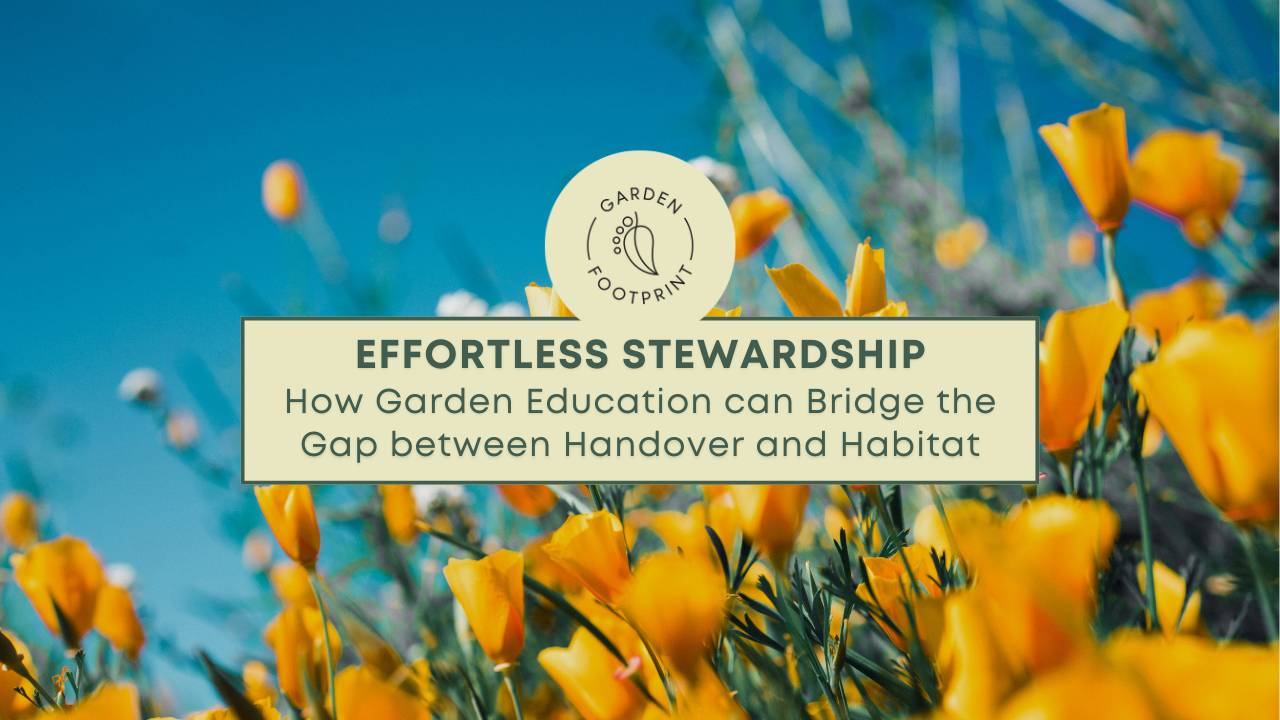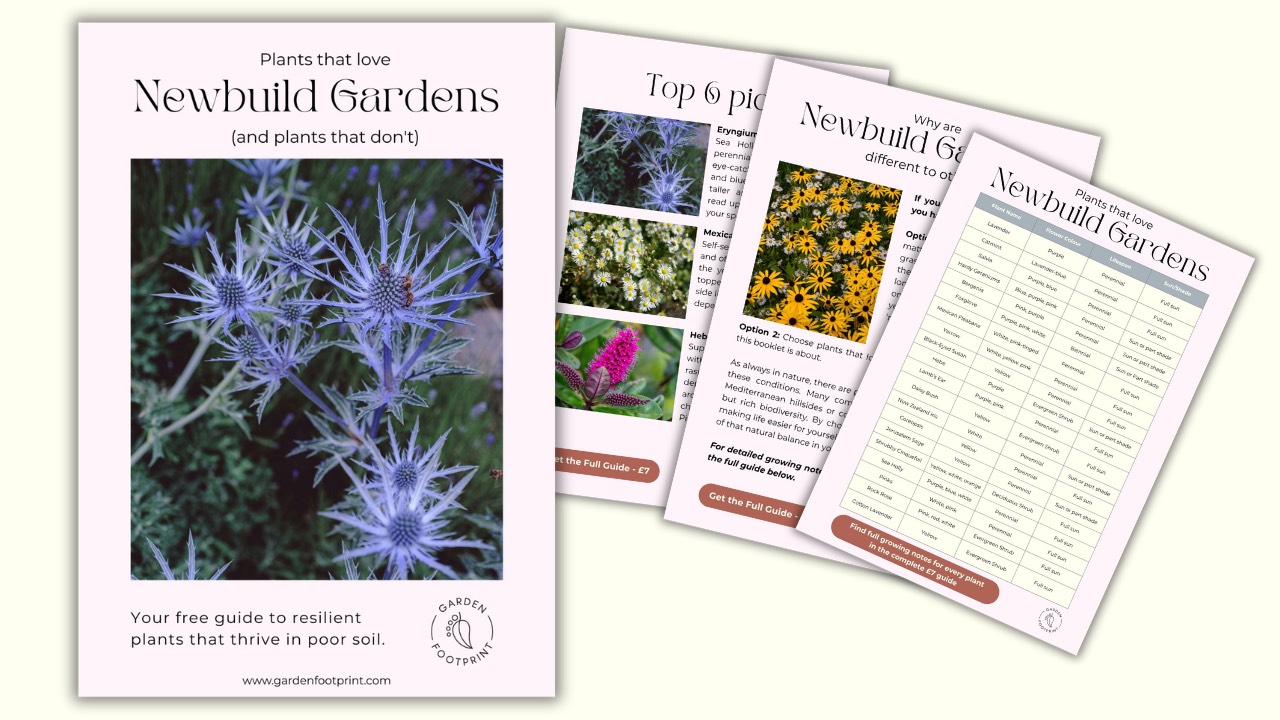Developer Insights
Practical garden-guidance on post-handover biodiversity, homeowner engagement, and long-term stewardship.
See the Garden Footprint Developer Programme
Garden Education - A new tool for turnkey environmental stewardship in the housing sector.
Many new build housing developments end the same way: the keys are handed over, the landscaping looks presentable — and within months, it starts to slip. Post-handover, biodiversity, soil health and resident engagement quickly fall outside a developer’s control, but not outside their reputation.
This challenge is precisely what the Self-Sustaining Garden Programme was created to solve — turning a persistent problem into an opportunity for industry leadership.. It’s the first fully branded homeowner-education and support programme designed specifically for new-build developments. It combines expert guidance, resident-facing resources, and marketing assets that help developers demonstrate long-term stewardship with no extra operational burden.
In a sector focused on Biodiversity Net Gain (BNG), S106 obligations, SUDS, CSR and nutrient neutrality, this is the missing link — turning policy goals into tangible, visible outcomes after residents move in.
Why partner with developers?
Housing developments represent one of the UK’s largest opportunities to influence how people connect with nature at home. Developers hold the key to influencing thousands of future gardens — spaces that could either flourish or decline.
For both developers and homeowners, the goals are the same: Ease of maintenance, beauty, biodiversity, resident wellbeing and long-term value. The challenge is that after handover, those goals fall outside the developer’s control — but not outside their reputation.
Education as stewardship
People want to care for their gardens, but they assume it’s complicated. It is — if you fight nature. But when you work with natural systems, it becomes efficient, rewarding and low-maintenance.
That’s what I teach through The Self-Sustaining Garden Programme — a concise, evidence-based homeowner course built for scale on a world-class learning platform. Backed by a small team of qualified ecologists and educators, it covers soil health, planting, composting, water use, edimentals (edible. ornamental plants), and biodiversity in a practical, no-nonsense way.
Developers could create their own equivalent, but it would take time, expertise and coordination. Garden Footprint delivers it instantly: a turnkey, premium partnership including marketing content, planning statements, PR materials, customer support, and branded homeowner education.
It doesn’t replace formal metrics like BNG, rather it complements them — reinforcing S106, SUDS, and CSR objectives while improving public-realm optics, nutrient management and resident satisfaction. NHBC Foundation research continues to highlight how education and stewardship are central to long-term quality in residential landscapes.
Of course, many residents won’t complete the course right away. That’s fine. The value lies in making expert support available the moment they’re ready. Furthermore, it shifts the onus back to the homeowner: your garden, your ecosystem, your opportunity.
The bigger picture
This initiative began with public pilots and received outstanding feedback — 100% five-star reviews. But the potential reach is far greater.
My aim isn’t simply prettier gardens. It’s to capitalise on the huge, unrealised potential in UK gardens. To redefine post-handover stewardship — to make it visible, intelligent and brand-enhancing whilst delivering real results on the ground.
For developers, this is an opportunity to break new ground in environmental stewardship: to be known not only for the homes you build, but for the landscapes that continue to thrive long after residents move in.
Garden education is the missing link between handover and habitat — and Garden Footprint's Self-Sustaining Garden Programme is the first mechanism built to deliver it.
Learn moreFree - Plants for Newbuild Soil
Newbuild gardens often start with compacted, low-nutrient soil — but that doesn’t mean they can’t thrive. This free guide introduces 10 plants that love tough conditions, helping you create a healthy, biodiverse garden from day one.
DownloadMeet Mike - Founder, Garden Footprint
Early career in construction project management, including S106 public consultation with Davis Langdon (now AECOM).
BSc Geography (Climatology and Ecosystems). Teacher of Geography and Gardening to 2000+ students.
Certified Permaculture Designer through Oregon State University. Commended by world-leading permaculture educator Javan Bernakevitch.
Mike founded Garden Footprint to help create biodiverse, edible, low-maintenance gardens that improve well-being and environmental health. The Self-Sustaining Garden programme brings this expertise directly to new homeowners, de-risking your landscaping commitments and strengthening your green credentials.
Get in touch

